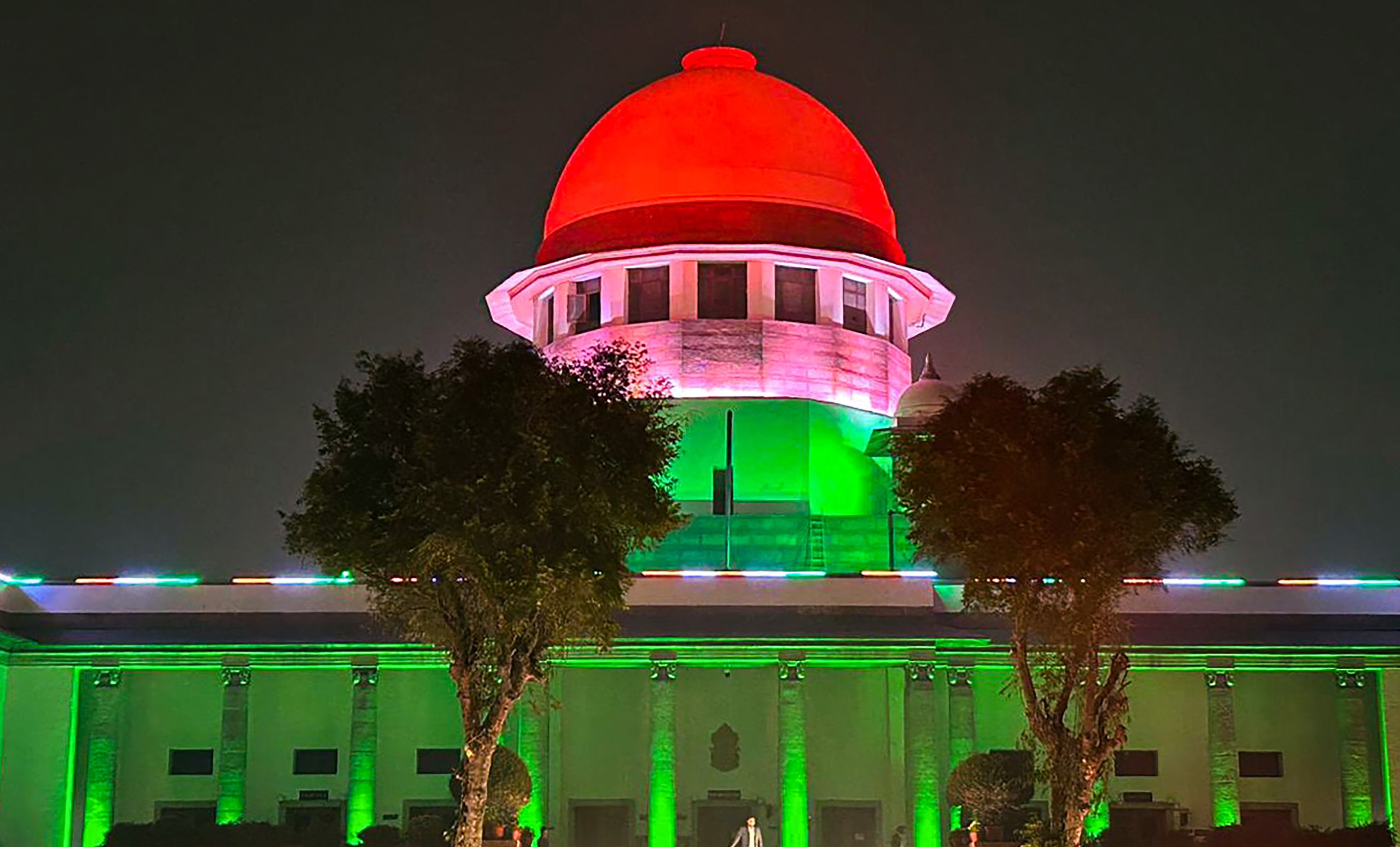New Delhi, Mar 20: The Supreme Court Monday took exception to making the Chief Justice of India one of the party respondents in a plea challenging the designation of lawyers as senior advocates.
A bench headed by Justice S K Kaul asked advocate Mathews J Nedumpara, who along with others has filed the petition, as to how they have arrayed the chief justice of India and the full court of judges of the apex court, through the secretary general, as party respondents.
“See the array of parties. You are a lawyer with 40 years of experience. How can you implead respondent number two (CJI) and three (full court) as parties? You first amend the memo of parties,” the bench, also comprising Justice A Amanullah and Justice Aravind Kumar, said.
The bench said it would not accept such a “cavalier approach” to the apex court. It told Nedumpara that the moment the top court registry had objected to it, the petitioners should have amended it.
It observed that the apex court can be impleaded as a party through the registrar, asked him to amend the memo of parties and said the petition will be listed for hearing only after that.
Nedumpara said he would delete them from the array of parties and would make the amendment within a day.
The bench said there is a judgment of a three-judge bench on the issue and the petitioners will have to persuade the court as to why the issue should be referred to a larger bench.
“We are otherwise bound by the three-judge bench. There is a judicial discipline on our side,” the bench said, adding the verdict by the three-judge bench says that this distinction, which the petitioners are seeking to assail, is valid.
When the counsel said he would carry out the amendments within a day, the bench said if that is done, the plea would be listed for hearing on March 24.
While hearing a separate batch of pleas, the apex court had on March 16 reserved its order on whether its 2017 verdict laying down guidelines for itself and high courts for designating lawyers as senior advocates require any tweaking.
The top court earlier said the October 2017 verdict had noted that the guidelines enumerated in it “may not be exhaustive of the matter and may require reconsideration by suitable additions/deletions in the light of the experience to be gained over a period of time”.
Some of the pleas have sought a declaration of the process adopted by some high courts to confer ‘senior’ designation to advocates through the process of secret voting of the full court as “arbitrary and discriminatory”.
In 2017, the top court laid down guidelines for itself and the high courts to govern the exercise of designating lawyers as seniors.
One of the guidelines provided that advocates with practice experience between 10 and 20 years will be awarded 10 marks each for their experience while being considered for designation as seniors.
The verdict, which had come out with a slew of guidelines, said, “All matters relating to the designation of senior advocates in the Supreme Court and all the high courts of the country shall be dealt with by a permanent committee to be known as ‘Committee for Designation of Senior Advocates’.”
The panel will be headed by the Chief Justice and consist of two senior-most judges of the apex court or high court(s), as may be, and the Attorney General or the Advocate General of a state in case of a high court, it had said.
On giving the Bar a representation, it said “The four Members of the Permanent Committee will nominate another Member of the Bar to be the fifth member of the Permanent Committee”. (Agencies)


